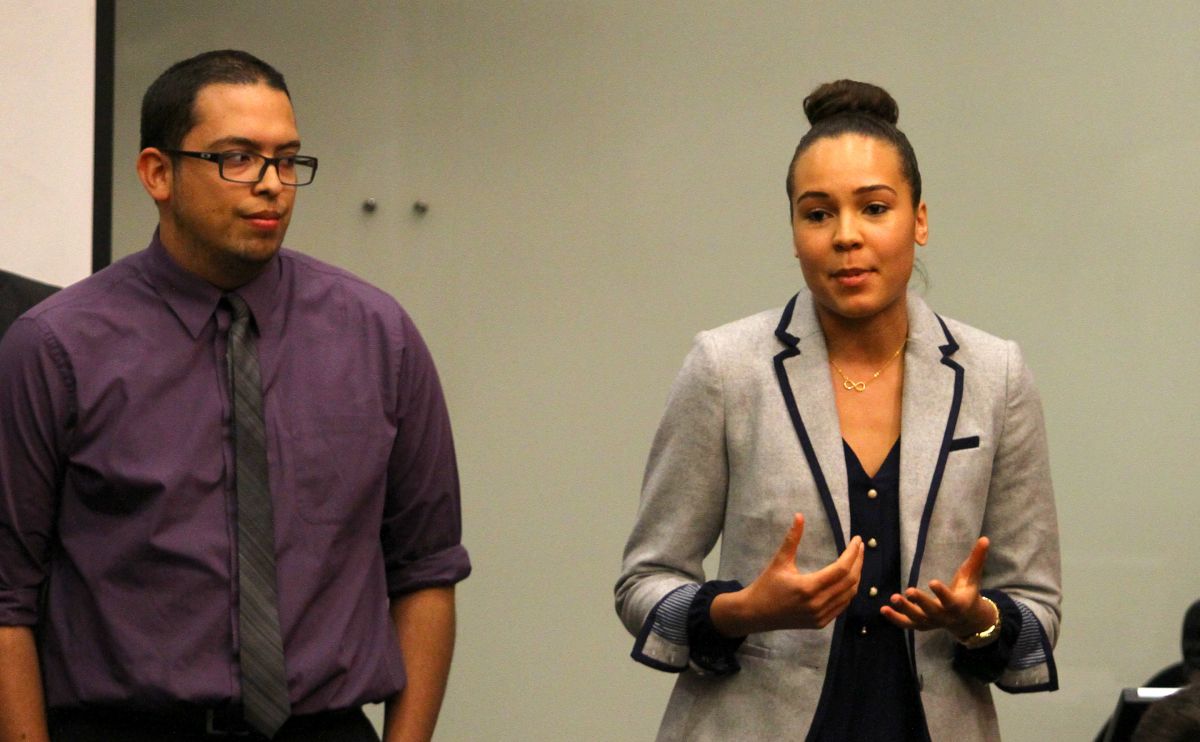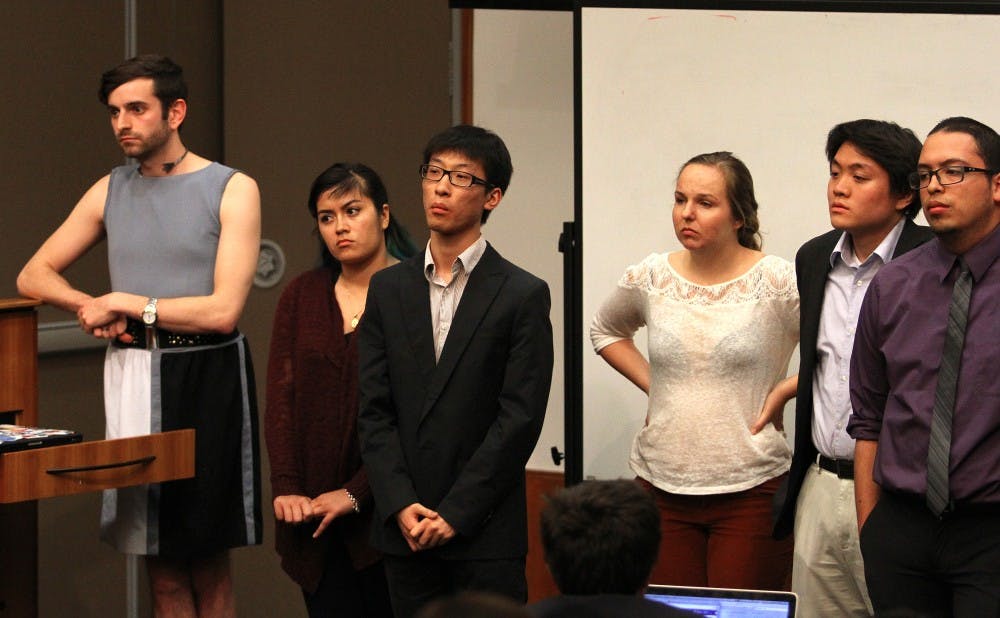AccessDuke, a coalition of students with the goal of supporting undocumented students in the undergraduate admissions process, spoke to the Duke Student Government senate Wednesday night about their initiative.
The coalition created a proposal to the University administration to help undocumented students gain equal access to and support from the University. Five undergraduate representatives from AccessDuke addressed the senate about what they see as current problems with the University’s admission system and their proposed solutions.
“We want the administration to say, ‘Not only do we admit undocumented students, but we welcome them here with open arms,’” senior Adam Rodriguez said.
Senior Jacob Tobia, vice president for equity and outreach, presented a proposal to the senate to support the AccessDuke initiative, and the senate will conduct the vote to determine support at next week’s meeting.
One of the problems noted with the current admission system is the use of need-aware, rather than need-blind, admission for international students. Sophomore Jessica Del Villar said this system often discourages undocumented students from applying and noted that currently five to 10 percent of undocumented high school students go on to higher education.
“This leaves a large percentage of college-eligible students stagnant and not able to move forward with their education,” Del Villar said, noting that the administration does not report how many undocumented students apply yearly and how many are admitted.
When completing the undergraduate application, undocumented students are required to identify as either domestic or international, which can create an environment of secrecy and insecurity, Tobia said
“Currently, students will check ‘international’ and then will call or have their school counselors call and say that they are undocumented,” Tobia said. “We want to take secrecy out of it.”
Tobia noted that only three percent of international students who request financial aid consideration on their application are admitted.
“Surely there’s a symbolic meaning more broadly, because if students knew that they could be admitted on a need-blind basis, they will be much more likely to apply,” Tobia said.
To solve these problems, AccessDuke proposes need-blind admission to undocumented students who can prove their state residency, assistance in the admissions process by way of a specialized admission officer and financial aid counselor, recruitment activity for immigrant communities and a press release made by the administration to announce these changes.
“We’re coming to students now to get a louder voice so that we can go back to the administration and get their attention,” Rodriguez said.
In other news:
The senate granted chartered status to two student organizations: the Arts Annex Advisory Board, a group that will make decisions pertaining to the Arts Annex and generally promote the arts on campus, and PhotoClub, a group for student photographers at all levels to connect and learn from each other.
The senate approved Student Organization Finance Committee allocations of $2,750 to the Black Student Alliance for their Earth, Wind and Fire event March 29 as part of BSAI weekend, and $1,650 to Delta Sigma Theta to bring LC Coleman, author of How to Be Your Own Hero, to campus April 3.
SOFC chair Joyce Lau, a senior, presented the annual budget guidelines, an explanation of what SOFC will and will not fund during the next academic year. Lau explained that the budget will only be used to fund capital expenditures of chartered student groups and will not fund giveaways, decorations, or alcohol. The budget will be presented to the senate at the next meeting and will be voted on by the senate April 9.
Executive Vice President Nikolai Doytchinov, a junior, introduced several constitutional amendments, including changing the name of the Student Organization Finance Committee to the Student Organization Funding Committee, allowing the executive board to issue executive orders as legislation when the senate is not in session by a two-thirds vote, not requiring the President’s signature for acts of the senate and executive orders to go into effect, removing the Residential Governance Structure article and removing the titles of the affiliate members. A second reading of the amendments will take place at next week’s meeting, and if they are passed by two-thirds of the senate, they will appear on a referendum on the April 10 ballot for rising sophomore, junior and senior senators.
President Stefani Jones, a senior, presented a three year contract with Jeremey Lindsley, an attorney that provides free legal advice for students every Thursday at University Center Activities & Events. DSG currently pays Lindsley $75 per hour for his counsel, and the new contract will increase his rate to $95 per hour. The senate will vote on the contract’s approval after the second reading at the next meeting.
Get The Chronicle straight to your inbox
Signup for our weekly newsletter. Cancel at any time.

